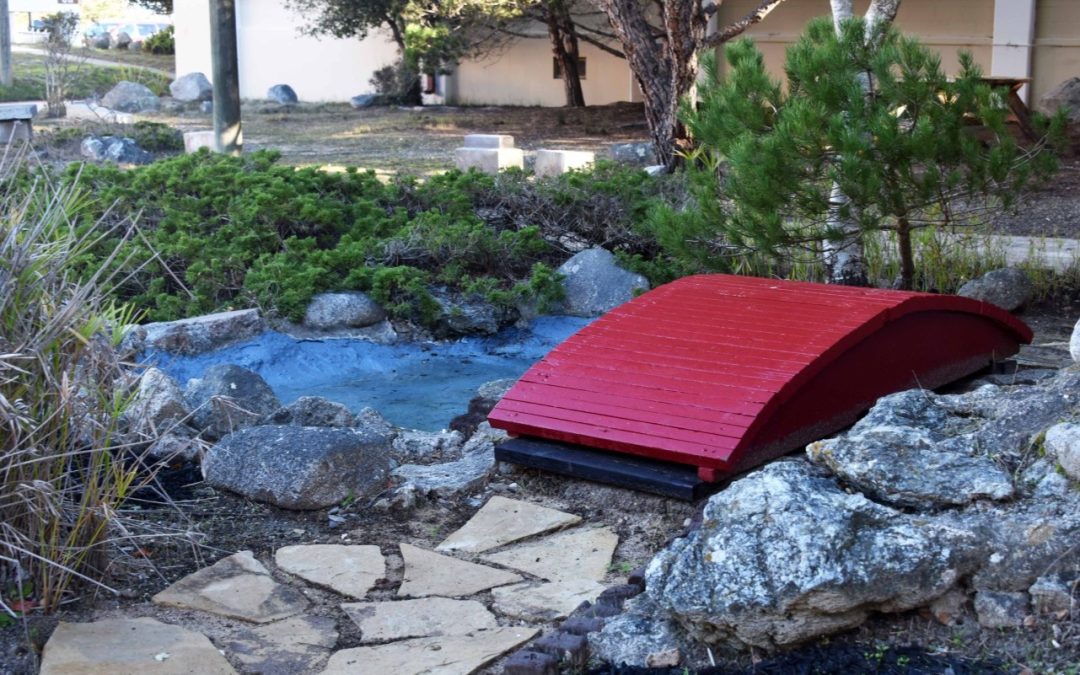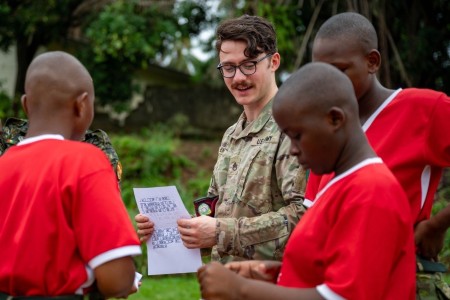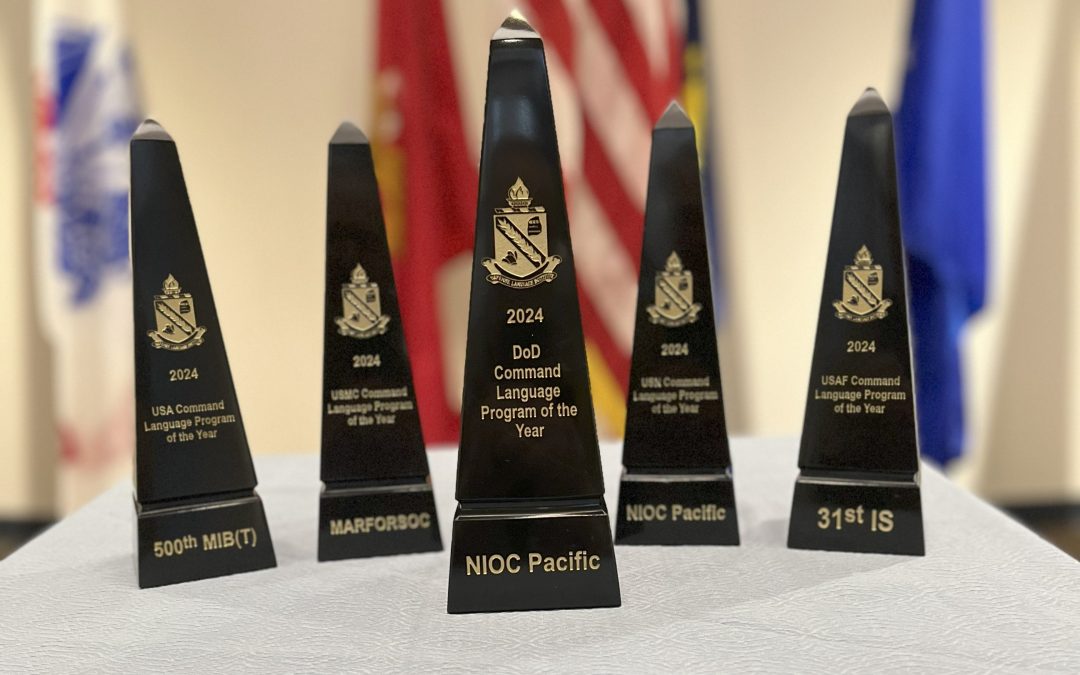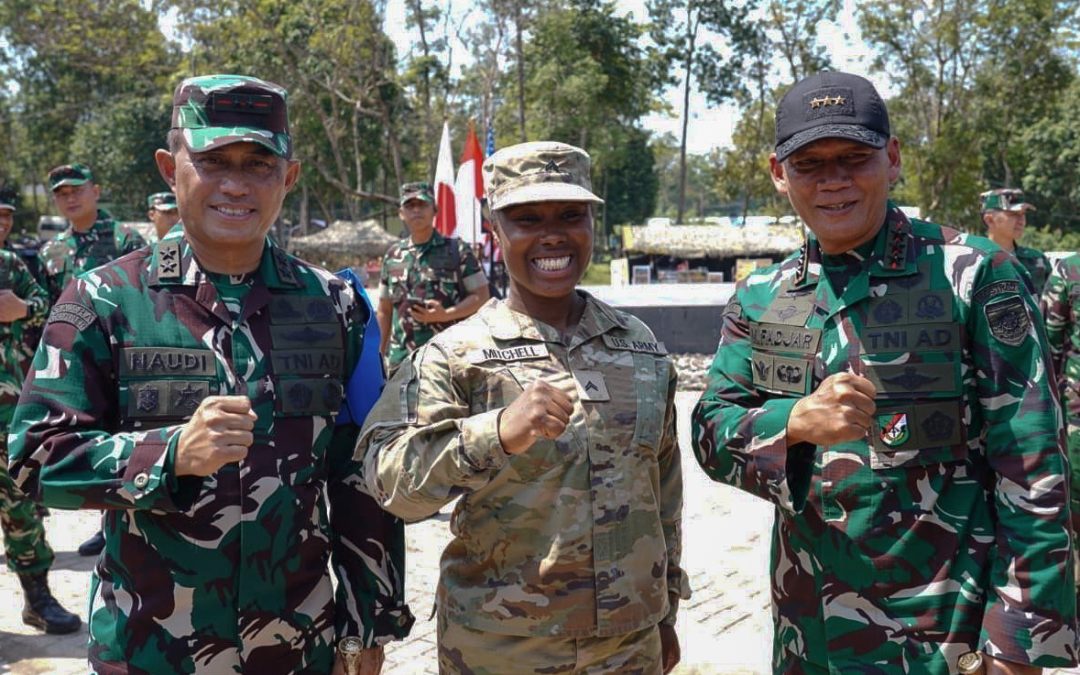By Tammy Cario
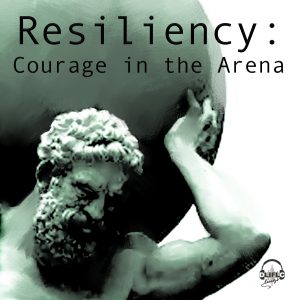 Over the last few years, resiliency has become a buzzword. Never more so than in 2020, thanks to a global pandemic that forced the entire world to adapt and change in often uncomfortable ways. It is now used everywhere to promote feel-good, life-affirming choices. Military and civilians alike are bombarded with this messaging.
Over the last few years, resiliency has become a buzzword. Never more so than in 2020, thanks to a global pandemic that forced the entire world to adapt and change in often uncomfortable ways. It is now used everywhere to promote feel-good, life-affirming choices. Military and civilians alike are bombarded with this messaging.
But just what is resiliency? And how do you develop those skills in the first place?
Joe Kuykendall, now a civilian working at the Defense Language Institute Foreign Language Center, was intrigued by these questions early in his Army career as a human intelligence collector. Kuykendall is a two-time DLIFLC graduate. His first experience in the Russian language course as a young Soldier was a struggle.
“It wasn’t connecting in my brain,” he said. “I didn’t feel like it was actually moving into any sort of long-term memory. It got to the point that it was so bad that they were discussing recycling me. And that felt like a personal failure.”
Kuykendall finally hit a breaking point. He decided he was done and that he couldn’t take it anymore. With that decision made, a weight was lifted. That night was the first time Kuykendall dreamed in Russian. He woke up the next day totally refreshed and everything just clicked. Homework that had before taken hours, now took 30 minutes. His GPA went from a 1.8 in his first semester to 3.3 in his second semester and then a 3.8 in his third semester.
“To me that really opened up this understanding that our brains are fascinating things,” Kuykendall said. “I was so curious as to why my brain and why my definition of my identity was holding me up from actually accomplishing what I knew I was capable of accomplishing.” That experience started him on his journey to studying the mind’s ability to react to stressful situations.
This wasn’t the first time Kuykendall came face-to-face with resiliency in his career. The next time was as a Survival Evasion Resistance and Escape instructor. This time, his experience was on the other side – he was the one who put people into stressful situations to teach them resiliency when they were at their very worst.
In SERE training, students are placed in gritty and visceral situations meant to imitate what enemy capture and torture might look like. The situation might resemble a jungle camp in Vietnam, a high security prison facility or ISIS detention camp. Whatever the scenario, being a SERE instructor meant taking people whose jobs might put them in harm’s way and training them on how to react.
“We’re teaching people to control their emotions, to think through” the situation rather than simply react, Kuykendall said. “[They] are more than likely going to be in a position of compromise emotionally and physically,” and yet they still had to live up to the code and conduct of the U.S. military.
“It is a practice. It’s a mindset,” Kuykendall said. “A fixed mindset is someone who believes they don’t really have any locus of control over what’s going on with them in their environment. Whereas a growth mindset looks at a challenge as an opportunity to grow.”
For Kuykendall, resiliency can be summed up in a speech given by President Theodore Roosevelt in 1910, what is often known as “The Man in the Arena” speech.
“It is not the critic who counts; not the man who points out how the strong man stumbles, or where the doer of deeds could have done them better. The credit belongs to the man who is actually in the arena, whose face is marred by dust and sweat and blood; who strives valiantly; who errs, who comes short again and again, because there is no effort without error and shortcoming; but who does actually strive to do the deeds; who knows great enthusiasms, the great devotions; who spends himself in a worthy cause; who at the best knows in the end the triumph of high achievement, and who at the worst, if he fails, at least fails while daring greatly, so that his place shall never be with those cold and timid souls who neither know victory nor defeat.”
To hear more about resiliency and Joe Kuykendall’s story, you can visit www.soundcloud.com/dliflc

